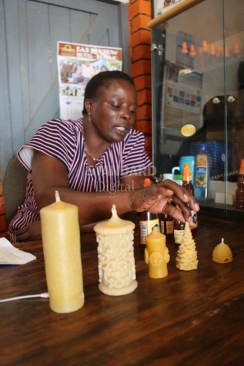×
The Standard e-Paper
Fearless, Trusted News

KAKAMEGA: On the day of this interview, our subject is celebrating her birthday.
“Today, I am 52 but my friends tell me that I look younger. The secret lies in consuming honey and staying close to bees. You know they have an admirable character that humans can ape,” the jovial Diana Lubira starts off the interview as she welcomes the Smart Harvest team at her factory at Kenya Industrial estate, Kakamega town.